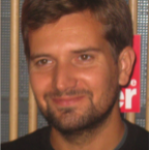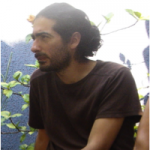Lien vers Pubmed [PMID] – 20609491
Lien DOI – 10.1016/j.tig.2010.05.007
Trends Genet 2010 Aug; 26(8): 363-72
Autism spectrum disorders (ASD) are characterized by impairments in reciprocal social communication, and repetitive, stereotyped verbal and non-verbal behaviors. Genetic studies have provided a relatively large number of genes that constitute a comprehensive framework to better understand this complex and heterogeneous syndrome. Based on the most robust findings, three observations can be made. First, genetic contributions to ASD are highly heterogeneous and most probably involve a combination of alleles with low and high penetrance. Second, the majority of the mutations apparently affect a single allele, suggesting a key role for gene dosage in susceptibility to ASD. Finally, the broad expression and function of the causative genes suggest that alteration of synaptic homeostasis could be a common biological process associated with ASD. Understanding the mechanisms that regulate synaptic homeostasis should shed new light on the causes of ASD and could provide a means to modulate the severity of the symptoms.





